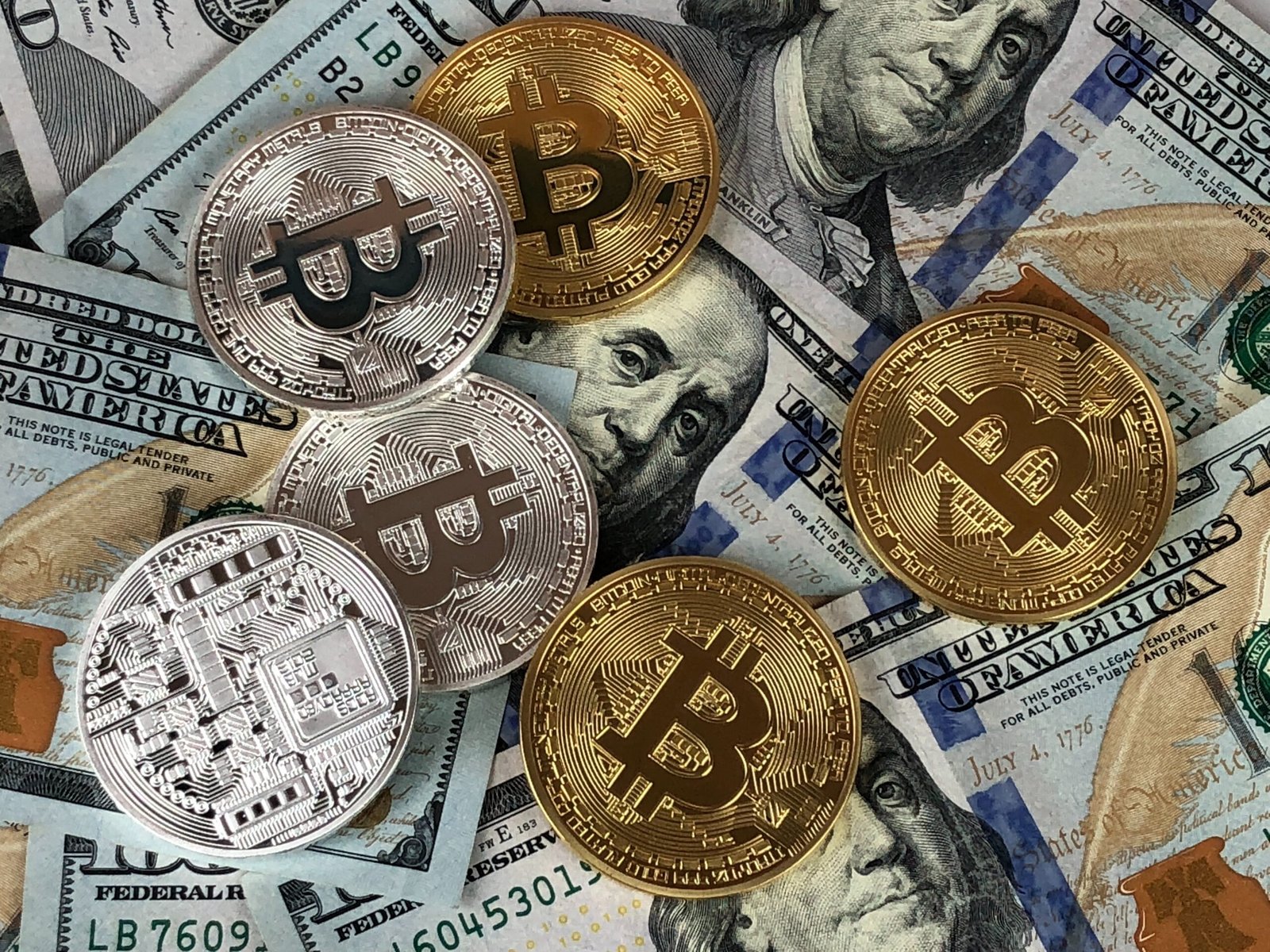
You’ve entered the fascinating world of cryptocurrency – a financial revolution sweeping across the globe. In this article, you’ll tackle the exciting topic of Amazon Crypto, along with an array of vital concepts ranging from how to buy younger cryptos to understanding challenging terms like APY. You’ll learn how to participate in a crypto pump, discover crypto-friendly banks, and uncover the meaning of ‘pegging’ in the crypto realm. The discussion will extend to various crypto types, such as Tiger King Coin and Luna, shedding light on their purchase and potential growth. You’ll also encounter intriguing topics like crypto billionaires and the ongoing debate on crypto crashes. Brace yourself as you journey through the expansive universe of cryptocurrencies and blockchain, from understanding operational aspects to uncovering its potential impacts.

Current Landscape of Cryptocurrency
Understanding the basics of cryptocurrency
Cryptocurrency, in simple terms, is a type of digital or virtual money. It serves as ordinary money, like dollars, but it is designed for exchanging digital information. Crypto works using technology called blockchain which is a decentralized technology spread across computers that manage and record transactions.
The rise of crypto in e-commerce
Over the last few years, we have witnessed an increased integration of cryptocurrencies in the area of e-commerce. Many online businesses have started to accept cryptocurrencies as a mode of payment, acknowledging the potential benefits such as low transaction fees, protection from fraud, and immediate transactions. There is no doubt that the future of e-commerce could be closely tied to the success of cryptocurrencies.
How Amazon’s entry could impact the crypto market
If the e-commerce giant Amazon enters into the world of cryptocurrency, it could potentially redefine the operations of the crypto market. Given its extensive user base and global reach, Amazon’s adoption of crypto could signify game-changing movement towards mainstream acceptance of cryptocurrencies.
Amazon’s Foray into Cryptocurrency
Rumors versus reality: Amazon’s official stance on crypto
There have been murmurs about Amazon showing an interest in the digital currency realm for some time now. Although the company has not made an official statement, it has shown signs of curiosity about blockchain technologies and cryptocurrencies.
Potential benefits for Amazon to adopt cryptocurrency
By embracing cryptocurrencies, Amazon could make transactions faster, safer, and more transparent. It could potentially reduce transaction costs, eliminate credit card fraud, and improve customer experience. Moreover, it could tap into a new customer base—crypto-savvy shoppers.
Challenges Amazon may face incorporating crypto transactions
Incorporating cryptocurrency transactions will present Amazon with numerous challenges. The first being the volatile nature of cryptocurrencies—prices can fluctuate wildly in short periods. Other potential issues include digital security threats and the regulatory landscape which varies from country to country.

Amazon Crypto Speculation
Community expectations of Amazon Crypto
The crypto community shows excitement and optimism towards Amazon’s potential entry into the crypto space. Blockchain enthusiasts expect that if Amazon accepts Bitcoin or releases its own digital currency, it would not only boost the price of Bitcoin but also pave the way for a wider acceptance of crypto in the retail world.
Expert analyses and predictions on Amazon’s crypto move
Crypto experts suggest that this could be a strategic move for Amazon. Though the market is replete with uncertainty and speculation, many agree that Amazon moving into the crypto space could signify a massive breakthrough in the acceptance and utilization of digital currency.
Potential features of an Amazon-backed cryptocurrency
An Amazon-backed cryptocurrency might offer many attractive features. For instance, lower transaction fees, instant processing times, enhanced security measures, and seamless integration with the Amazon ecosystem. In addition, it could possibly offer customer rewards or be used to streamline their supply chain operations.
Use Cases of Amazon Crypto
Possible integration with Amazon’s existing services
If Amazon were to launch its own cryptocurrency, it could be smoothly integrated with its vast array of existing services – everything from shopping, streaming, cloud computing, to its mobile ecosystem. For example, Amazon coins could be used to make purchases or pay for services like Amazon Prime, Kindle eBooks, or Amazon Video.
Loyalty programs and customer incentives with Amazon Crypto
Amazon cryptocurrency could be a game-changer for customer reward and loyalty programs. Shoppers might earn crypto rewards for every purchase, or get special discounts and promotional offers when using the Amazon cryptocurrency. This could boost customer loyalty and increase sales for the e-commerce giant.
How third-party sellers could use Amazon Crypto
Amazon’s potential cryptocurrency could provide a new, simplified way of transaction for the millions of third-party sellers. They could possibly reduce their operating expenses due to lower transaction fees offered by using cryptocurrencies, which would make their businesses more profitable.

Acquiring Amazon Crypto
How to buy new crypto before listing
Acquiring newly announced cryptocurrencies before they are listed on major exchanges can be complex and involves purchasing from Initial Coin Offerings (ICO), interacting directly with blockchain projects, or by participating in a pre-sale event.
Where to buy Amazon’s potential cryptocurrency
If Amazon were to launch its own cryptocurrency, it would likely be available on popular crypto exchanges. However, Amazon itself could also develop a proprietary exchange to sell its cryptocurrency.
Methods for purchasing crypto under legal age limits
Depending on the country, the legal age to buy cryptocurrencies like Bitcoin varies. However, it is worth noting that underage users may find ways around these rules by using debit cards or peer-to-peer trading platforms.
Amazon and Crypto Trading
Understanding spot trading and its relevance to Amazon Crypto
Spot trading involves the buying or selling of a commodity, currency, or securities for immediate delivery on a specific spot date. In the crypto world, this means buying or selling cryptocurrencies at ‘spot prices’. It could be fascinating to see how the dynamic world of spot trading responds to Amazon’s potential cryptocurrency.
How to short cryptocurrencies, including Amazon’s
Shorting, or short-selling, refers to the act of profiting off a fall in a cryptocurrency’s price. Traders can borrow a cryptocurrency, sell it at the current market price, and then buy it back after the price drops. As risky as this issuance is, the introduction of Amazon’s crypto could present new opportunities for traders.
Crypto staking and its implications for Amazon users
Crypto staking involves holding a cryptocurrency in a digital wallet to support a blockchain network’s operations such as validating transactions. If Amazon launches a proof-of-stake (PoS) cryptocurrency, holders might be able to stake their coins directly in the Amazon ecosystem.

Managing Amazon Crypto Assets
Security aspects of holding Amazon Crypto
As with any cryptocurrency, the safety of holding Amazon Crypto would be vital. Most likely, Amazon would have to offer strong security features for their cryptocurrency wallets or partner with existing secure wallet providers to guard against threats.
Sending, receiving, and transferring Amazon Crypto
The way one might send, receive or transfer Amazon Crypto would likely be similar to other digital currencies—it would involve digital wallets. Amazon may build its own proprietary wallets, or coordinate with existing platforms to make transactions as effortless as possible.
How to sell and cash out on Amazon Crypto
To sell or cash out on Amazon Crypto, users might need to use a cryptocurrency exchange that accepts the specific Amazon cryptocurrency, or Amazon itself could provide a selling platform within their ecosystem.
Amazon’s Impact on the Crypto Ecosystem
Will Amazon make crypto more mainstream?
Amazon’s entry to crypto could definitely lead to a broader acceptance of cryptocurrencies given the company’s vast user base. It could potentially bring in millions of new users to the crypto space, making crypto a lot more mainstream than it is today.
Possible new entrants into crypto following Amazon’s lead
If Amazon successfully adopts cryptocurrency, it could set a precedent and encourage other tech giants to follow in their footsteps. This could lead to a new wave of businesses entering the crypto space, further popularizing and normalizing the use of digital coins in everyday transactions.
Crypto-friendly banks and their potential collaboration with Amazon
Crypto-friendly banks are financial institutions that recognize and allow cryptocurrency transactions. As Amazon ventures into cryptocurrency, collaborations between them and crypto-friendly banks could possibly bloom, creating symbiotic relationships that bolster both parties.

Regulatory Perspectives on Amazon Crypto
Legal considerations for Amazon issuing a cryptocurrency
Issuing a cryptocurrency is a serious undertaking that involves careful consideration of various legal aspects. Amazon would have to navigate multiple international jurisdictions and comply with financial regulations, which vary widely across regions.
How old do you have to be to invest in crypto, including Amazon’s?
The legal age to invest in cryptocurrencies, including potentially Amazon’s own, largely depends on your country’s regulations. Increasingly, however, it is being recognized that you must be at least 18 years of age to participate in cryptocurrency transactions.
Potential global regulations impacting Amazon Crypto
Cryptocurrency regulations differ around the globe. Some countries embrace it, some are in the process of setting up regulations, while others have banned it outright. Any steps Amazon takes towards cryptocurrencies will need to take into account the nuanced global regulatory landscape.
The Future of Amazon and Cryptocurrency
Predicting long-term effects of Amazon’s crypto initiatives
While it’s difficult to predict the long-term effects, Amazon’s exploration into crypto indicates the extent to which digital currencies might play an integral part in our future. The e-commerce giant venturing into crypto could drive wider acceptance of crypto, stimulate digital innovation and revolutionize the way we shop online.
Innovations Amazon might bring to the crypto infrastructure
Given Amazon’s history of innovation, it is not unreasonable to expect it to bring significant advances to the crypto infrastructure. Whether it’s the simplification in payment process, customer rewards programs, or strengthening the security capabilities of cryptocurrencies, Amazon’s potential crypto entry could usher in a new dawn of innovation.
Speculations on Amazon’s blockchain technology pursuits
Blockchain is the technology that underlies cryptocurrencies and offers a new kind of secure, decentralized ledger system. Given Amazon’s size and technological prowess, the company’s future pursuits could significantly impact the development and adoption of blockchain technology across various industries.